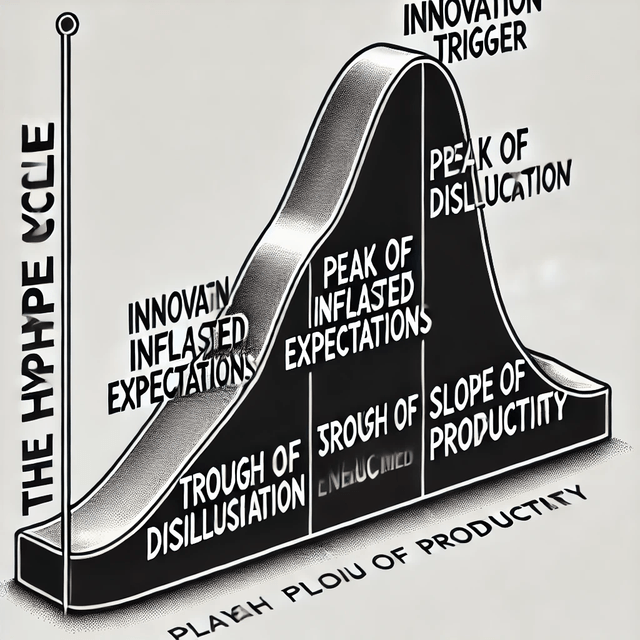The Transformative Impact of AI on the Video Game Industry
- 18 Aug, 2024

The Transformative Impact of AI on the Video Game Industry
Introduction
Artificial Intelligence (AI) has emerged as a transformative force across numerous industries, and the video game sector is no exception. From enhancing game development processes to revolutionizing player experiences, AI is poised to redefine the landscape of gaming. This report delves into the multifaceted ways AI is transforming the video game industry, exploring its impact on game design, player engagement, quality assurance, and future trends.
AI in Game Development
Procedural Content Generation
One of the most significant contributions of AI to game development is Procedural Content Generation (PCG). PCG involves the algorithmic creation of game content, such as levels, characters, quests, and items, rather than manual design. This approach allows developers to generate vast amounts of content efficiently, introducing a level of randomness, variety, and unpredictability to game experiences (Whimsy Games).
AI-driven PCG enhances player engagement by offering a multitude of choices tailored to individual preferences. By continuously adapting to player actions and preferences, AI ensures a fresh gaming experience that resonates with players of all skill levels (Getgud.io). Companies like Hello Games, Ubisoft, and Motion Twin are leading the way in utilizing AI for PCG, showcasing its potential to create richer and more dynamic game worlds (Getgud.io).
AI-Driven Game Design
AI is revolutionizing game design by enabling the creation of more engaging and immersive games while reducing development time and costs. AI-powered game engines, game design, characters, environments, and narratives are already enhancing the gaming experience for players (Interesting Engineering). Decision trees, reinforcement learning, and Generative Adversarial Networks (GANs) are transforming how games are developed, paving the way for automated game design, data annotation, and recognition-based games (Interesting Engineering).
AI in Storytelling
AI-driven storytelling is redefining how narratives are crafted in video games. By enabling dynamic narratives that adapt to player choices and actions, AI transforms passive storytelling into an engaging, player-driven experience. This approach enhances immersion and replayability, allowing players to create their own stories within the game world (Progress Saved).
AI algorithms analyze player behavior and adapt narratives in real-time, providing a level of personalization that was once unattainable. This harmonious blend of traditional and AI-driven storytelling techniques results in captivating and immersive gaming experiences (Progress Saved).
Enhancing Player Experience
Personalized Gaming Experiences
AI’s analytical abilities extend beyond gameplay mechanics, delving into player preferences and behaviors. By analyzing player data, AI enables the delivery of personalized gaming experiences, from tailored content recommendations to dynamically adjusting narrative paths. This bespoke approach fosters deeper connections between players and games, ensuring that each experience is meaningful and fulfilling (Becoming Human).
AI-driven adaptive gameplay systems dynamically adjust game difficulty based on individual player skill levels, preferences, and performance. Continuously monitoring player behavior and performance metrics, these systems adapt gameplay elements such as enemy strength, puzzle complexity, and mission objectives to ensure an optimal and enjoyable experience for each player (Pure Software).
AI-Driven NPCs
Non-Player Characters (NPCs) are vital components of any game world. AI enhances the behavior and intelligence of NPCs, making them more realistic and interactive. AI-driven NPCs can evolve based on player interactions, creating a more immersive and dynamic gaming experience (Medium).
Real-Time Player Behavior Analysis
AI-powered analytics platforms revolutionize how game developers understand and respond to player behavior in real-time. By analyzing vast amounts of player data, AI algorithms uncover valuable insights into player preferences, tendencies, and engagement patterns. Developers leverage these insights to tailor game experiences, optimize monetization strategies, and enhance player retention (Pure Software).
Quality Assurance and Testing
Automated Testing and Quality Assurance
The complexity of modern games necessitates thorough testing to ensure software quality and player satisfaction. Traditional manual testing methods may need to be revised, given the increasing complexity of games and the demand for flawless performance across various platforms. AI emerges as a transformative force, offering innovative solutions to elevate the testing process and bolster overall game quality (Headspin).
AI-driven automated testing and quality assurance involve using software tools to execute tests on game builds, identify issues, and ensure the game meets quality standards. AI enhances these processes by introducing intelligent automation, capable of adapting to new scenarios, learning from previous tests, and predicting potential issues (Getgud.io).
AI-Powered Game Testing
AI-powered game testing enables QA teams to perform thorough checks efficiently. AI algorithms can identify and report bugs, glitches, and performance issues more efficiently than manual testing, saving time in the game development process and ensuring a higher level of game quality by addressing issues early in development (Whimsy Games).
AI in Graphics and Animation
AI-Enhanced Graphics Rendering
AI-driven techniques have been employed to generate higher-quality textures and more accurate lighting effects. For example, ray tracing uses AI algorithms to simulate the physical behavior of light, producing realistic reflections, shadows, and global illumination in games like Cyberpunk 2077 and Battlefield V (Medium).
Enhanced Animations
AI can analyze and learn from real-world motion data to generate more natural and fluid animations for in-game characters. By training AI models on vast datasets of human and animal movements, game developers can create realistic animations that dynamically adapt to various scenarios. For instance, Euphoria, a middleware solution used in games like Grand Theft Auto V and Red Dead Redemption 2, employs AI to generate physics-based character animations that respond to in-game situations in real-time (Medium).
Realistic AI Environmental Effects
Incorporating dynamic weather simulation through AI enriches visual fidelity and contributes to an adaptive gameplay experience where changing conditions can influence player strategies. AI-generated terrain texturing allows for the generation of diverse and intricate landscapes, reducing the manual workload and ensuring consistency across expansive game worlds (IPIC).
Ethical Considerations
Data Privacy and Security
As AI-driven technologies become more prevalent in gaming, ethical considerations regarding data privacy and security come to the forefront. AI algorithms rely on high-quality data sets for training and analysis, but data quality issues, such as inconsistencies or errors in data sets, can pose challenges in AI testing. Developers must use AI-powered tools for data validation and analysis to ensure accurate results and improve data reliability in game testing (Whimsy Games).
Algorithm Bias and Fairness
AI algorithms must be designed to avoid bias and ensure fairness in gameplay. Developers must prioritize responsible AI implementation to ensure that player experiences remain enjoyable and respectful of privacy and fairness. Addressing questions about data privacy, algorithm bias, and the potential manipulation of player emotions is crucial as AI-driven storytelling evolves (Progress Saved).
Future Trends and Opportunities
Cloud Gaming and AI
AI is set to revolutionize the future of cloud gaming and mobile game development. Leveraging its potential for virtual reality games will transport players to new dimensions, while its influence on the development of virtual world gaming experiences will redefine how gamers interact with game environments. The impact of AI is poised to transform the gaming landscape, offering endless possibilities for the future (Whimsy Games).
AI in Player Sentiment Analysis
AI-driven player sentiment analysis can provide valuable insights into player emotions and preferences, allowing developers to create more engaging and emotionally resonant gaming experiences. By analyzing player feedback and in-game behavior, AI can help developers understand what aspects of the game resonate with players and make data-driven decisions to enhance player satisfaction (Whimsy Games).
AI in Cheat Detection
AI algorithms can detect and prevent cheating in online games, ensuring a fair and enjoyable gaming experience for all players. By analyzing player behavior and identifying patterns indicative of cheating, AI can help maintain the integrity of online gaming environments and enhance player trust (Whimsy Games).
Conclusion
AI is undeniably transforming the video game industry, offering innovative solutions that enhance game development, player experiences, quality assurance, and more. From procedural content generation and AI-driven storytelling to personalized gaming experiences and advanced graphics rendering, AI is revolutionizing how games are designed, developed, and played. As AI technology continues to advance, the future of gaming promises even more intelligent, intuitive, and personalized experiences for players worldwide.
References
- Whimsy Games. (2024, May 10). Mastering AI-Powered Procedural Content Generation for Games. Retrieved from https://whimsygames.co/blog/mastering-ai-powered-procedural-content-generation-for-games/
- Interesting Engineering. (n.d.). Gaming Intelligence: How AI is revolutionizing game development. Retrieved from https://interestingengineering.com/innovation/gaming-intelligence-how-ai-is-revolutionizing-game-development
- Progress Saved. (n.d.). Storytelling Revolution: Crafting Dynamic Narratives in Games with AI-Powered Storytelling. Retrieved from https://progresssaved.com/storytelling-revolution-crafting-dynamic-narratives-in-games-with-ai-powered-storytelling/
- Becoming Human. (n.d.). AI in Gaming: Pioneering the Future of Interactive Entertainment. Retrieved from https://becominghuman.ai/ai-in-gaming-pioneering-the-future-of-interactive-entertainment-7f87cacea6a8
- Pure Software. (n.d.). AI in Gaming: A Forward-Thinking Perspective for Delightful Player Experiences. Retrieved from https://www.puresoftware.com/blog/ai-in-gaming-a-forward-thinking-perspective-for-delightful-player-experiences
- Getgud.io. (n.d.). Leveraging AI for Procedural Content Generation in Game Development. Retrieved from https://www.getgud.io/blog/leveraging-ai-for-procedural-content-generation-in-game-development/
- Medium. (n.d.). Generative AI in Game Design: Procedural Content Generation and AI-Driven NPCs. Retrieved from https://medium.com/@aishwarya_62914/generative-ai-in-game-design-procedural-content-generation-and-ai-driven-npcs-d93dc15d39d9
- Headspin. (n.d.). AI Integration in Game Testing. Retrieved from https://www.headspin.io/blog/ai-integration-in-game-testing
- IPIC. (n.d.). 13 Tips for Elevating Game Graphics with AI. Retrieved from https://www.ipic.ai/blogs/13-tips-for-elevating-game-graphics-with-ai/
- Medium. (n.d.). The Rise of AI in Video Games: How Artificial Intelligence is Changing the Gaming Experience. Retrieved from https://medium.com/@alexnorthwood/the-rise-of-ai-in-video-games-how-artificial-intelligence-is-changing-the-gaming-experience-93e621df276a
- Whimsy Games. (2024, May 10). AI Technology in Video Games: Future of Gaming Forecast. Retrieved from https://whimsygames.co/blog/ai-technology-in-video-games-future-of-gaming-forecast/


